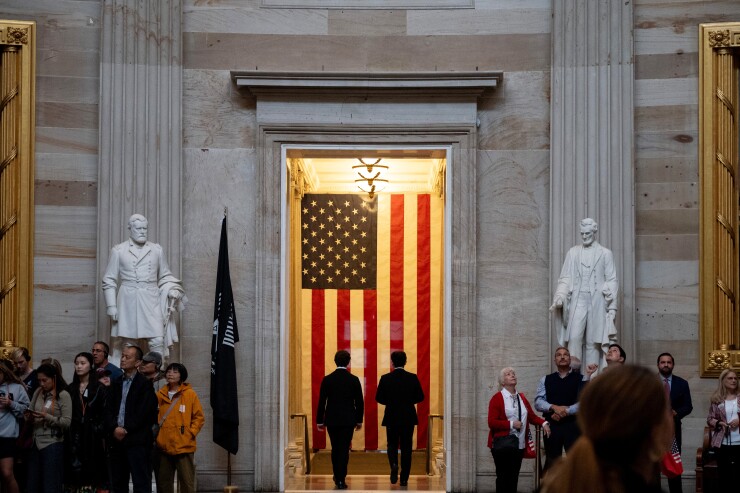The Republican legislative balancing act now shifts to the Senate.
Senate Majority Leader John Thune (R-South Dakota) said this week House Republicans would like to see as few changes as possible to the sweeping tax and spending package (
"The Senate will have its imprint on it," said Thune.
Indeed, GOP senators have their own demands, and the package will have to survive the chamber's complex rules — a historically time-consuming process.
Byrd Rule issues
The reconciliation process allows tax and spending legislation to pass with a simple majority, but the bill still needs to survive the Byrd Rule — named after the late Sen. Robert Byrd (D-West Virginia), known for his mastery of parliamentary procedure. It prevents lawmakers from tucking non-budgetary provisions into the legislation.
"The committees are working closely to try and identify potential Byrd problems ahead of time," Thune said.
The Senate parliamentarian makes calls on challenges against provisions in the bill and whether they survive the "Byrd Bath." Democrats plan to aggressively use the rule to challenge items they believe don't satisfy the Byrd standard. Once the package makes it to the floor, senators will be prepared for a marathon vote-a-rama on amendments.
GOP senators hope the advance work will help keep the measure moving, but a look at the history of the chamber's experience with big bills shows it will likely be a lengthy process.
For the reconciliation bills enacted since 1980, the time between adoption of a budget resolution and enactment of the reconciliation bill ranges from 28 to 385 days, with a 152-day average, according to the
Independence Day target
"It will take longer than expected just because it is arduous and it's designed to be that way," Sen. Mike Rounds (R-South Dakota) said. "It would be great to get it out before the Fourth of July break."
Majority Whip John Barrasso (R-Wyoming) said the Senate Finance Committee has been meeting since last summer and "have some ideas that may or may not be in the House bill." Barrasso said he'll work with every member of his conference, calling Trump and Vice President JD Vance persuasive members of the whip team as well.
Congress didn't clear Republicans' 2017 tax overhaul until December of that year, Barrasso said, but this bill faces a tighter deadline because it includes a debt ceiling hike. The borrowing limit could hit as soon as August.
Sen. John Hoeven (R-North Dakota) said the message to Senate Republicans right now is to work with committees of jurisdiction.
"Whatever committee you're on, work with your chairman on your committee, is really where we're at," Hoeven said.
Thune originally proposed moving the measure in two parts, but Trump wants his agenda rolled into a single package, which the House dubbed "The One Big Beautiful Bill Act." Sen. Ron Johnson (R-Wisconsin) is still advocating for the previous approach.
Asked when the Senate could get it done, Johnson said, "We are so far away from an acceptable bill, it's hard to say."
"I think we could move very quickly if we split it into two."
Next steps
If the Senate amends the reconciliation legislation, the House would need to vote on the amended legislation or they would need to be reconciled in a conference committee. That's likely to lead to more challenges, given the tight margins in the House.
Rep. Chip Roy (R-Texas), one of the most vocal conservative hardliners who ended up supporting the bill, acknowledged Senate changes are coming and suggested tough negotiations lie ahead between the chambers.
"We'll give them some flexibility, they gotta work their will, but somewhere between us and the Senate and the White House, there's gonna be some red lines and those will be public pretty soon," Roy said.






